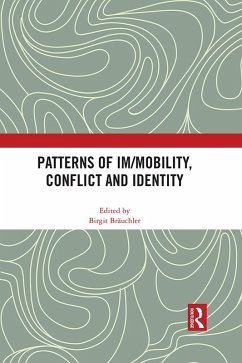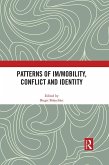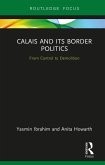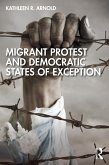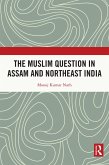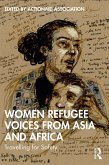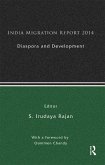Dieser Download kann aus rechtlichen Gründen nur mit Rechnungsadresse in A, B, BG, CY, CZ, D, DK, EW, E, FIN, F, GR, HR, H, IRL, I, LT, L, LR, M, NL, PL, P, R, S, SLO, SK ausgeliefert werden.
- Peggy Levitt; Chair, Department of Sociology, Wellesley College; Co-Founder, Global (De)Centre; Associate, Weatherhead Center for International Affairs, Harvard University.
"In order to investigate the impacts of conflicts on collective patterns of mobility and immobility, this collection brings together a rich assembly of case studies from Kosovo, Sierra Leone, Liberia, Bangladesh, East Timor and Indonesia. In a refreshing way, the contributors to this formidable volume not only explicate old and new concepts utilised for the study of forced and voluntary migration, but also offer new insights on models such as conviviality, reciprocity, marginalization and stigmatization gained from long-term encounters in the field. Concentrating on close-up views of everyday life and reaching far beyond formal politics, the contributors challenge more traditional understandings of stranger/host relationships, strategic alliance-building and competitive behaviours, as well as the politics of belonging. This collection makes for stimulating reading and is highly recommended to academics and practitioners alike, particularly those engaged in peace-building, citizenship and mobility rights."
- Antje Missbach, Bielefeld University
"Patterns of Im/mobility, Conflict and Identity is a welcome addition to migration and mobility studies. It builds on and interrogates the mobility turn and transnational migration studies by focusing in particular on internal mobility and its connection to immobility. The ethnographically-rich case studies from Asia, Africa and Europe carefully describe the tensions arising from different patterns of im/mobility, how these impact imaginations of and relations between groups and shape processes of marginalization, reterritorialization and identity formation. The volume is a great read to anyone interested in thinking about the ambiguities of migration and how and why im/mobility may trigger or change the politics of inclusion and exclusion."
- Annuska Derks, Co-director, Department of Social Anthropology and Cultural Studies, University of Zurich

